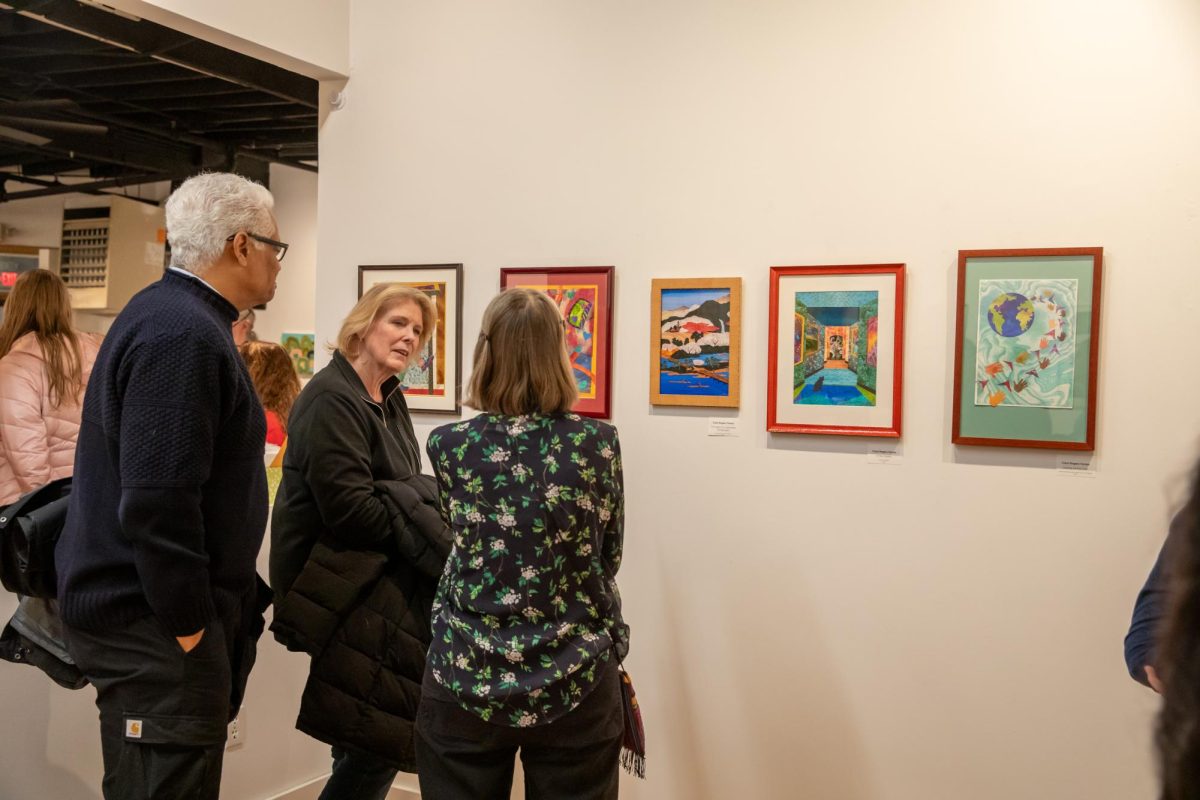While truncated Twitter feeds and Facebook statuses assault ever shortening attention spans, one University of Minnesota group challenges this popular short form of writing. Twenty students participating in National Novel Writing Month (NaNoWriMo) will write completely original novels in just 30 days.
Group members plan to write a minimum of 50,000 words, roughly the length of F. Scott FitzgeraldâÄôs âÄúThe Great GatsbyâÄù and Aldlous HuxleyâÄôs âÄúBrave New World.âÄù Since 1999, NaNoWriMo has challenged writers to create their own universe within the pages of their word processor.
Founded in 1999 by Chris Baty, the event has grown from only 21 initial participants to 200,000 in 2010. NaNoWriMoâÄôs website (NaNoWriMo.org) estimated writers last year wrote 2.8 billion words for the event.
Eric Dolski, a journalism and English senior, founded the University group as a freshman intent on crafting a fantasy novel.
âÄúI wanted to get a story out there and the first couple days were difficult, but then as soon as I started really writing I started really enjoying it and empathizing and understanding these characters I was creating,âÄù Dolski said. âÄúItâÄôs like you create your own world. And thatâÄôs a good powerful, fulfilling feeling.âÄù
To avoid the inevitable writerâÄôs block that comes with committing 1,667 words to a page each day, NaNoWriMo veteran Annette Kavanaugh uses online devices for generating ideas. A 30 day character interview available on NaNoWriMo.org forces writers to flesh out even the most mundane aspects of their main characters. Other members use dice or tarot cards in order to leave plots to complete chance.
âÄúSometimes what it helps to do is just whack one of your characters and see what follows from there,âÄù Kavanaugh said.
Another device NaNoWriMo members use, âÄúThe Travelling Shovel of Death,âÄù propels stagnant plots by forcing characters to react to anotherâÄôs sudden death. The random nature to these devices and NaNoWriMoâÄôs overall constriction also force writers to take risks.
âÄúThe reason I like this challenge so much [is because] itâÄôs basically about the spirit of play,âÄù Kavanaugh said. âÄúThrow perfectionism out the window.âÄù
As Coordinator for the Multicultural Center for Academic Excellence, Kavanaugh, the one staff member within the NaNoWriMo group, stresses the importance of interdisciplinary writing. KavanaughâÄôs forthcoming novel involves medical science research for her protagonist, a forensic artist.
Her background in math and philosophy contributes to a broad scope of interest reflective of the magical realism novels she began writing at age 12.
âÄúStudying math taught me a lot about structure,âÄù Kavanaugh said. âÄúI come back to novelists who have puzzled me and can see what they were doing.âÄù
Novelists often incorporate intricate structures to their works, much like the Sierpinski triangle inspired the structure behind David Foster WallaceâÄôs 1996 behemoth, âÄúInfinite Jest.âÄù
English majors alongside College of Science and Engineering students participate with equal enthusiasm. Nick Freechack, a computer science sophomore, continues a science fiction saga this year that he developed in previous NaNoWriMo events.
âÄúYou basically become the god of this world that you create. You kind of go: âÄòWhatâÄôs this character going to do?âÄôâÄù Freechack said.
âÄúYouâÄôre not writing it, youâÄôre letting the characters run around doing what they want. So you donâÄôt really know where itâÄôs ever going to go,âÄù College of Biological Sciences sophomore Cameron Mackay added. Considered a NaNoWriMo âÄúrebel,âÄù Mackay plans on writing short stories rather than a novel.
âÄúItâÄôs an interesting way to express ideas that you just have floating around in your head,âÄù Mackay said. âÄúYou just think about things and you just donâÄôt have anywhere to put them down, and writing is a fun way to do that.âÄù
Participants without KavanaughâÄôs mountains of empirical research or time still benefit from NaNoWriMo for its unique discovery process. An English, journalism and religious studies junior, Alex Lauer thought of his plot on the way to the groupâÄôs introductory meeting.
Akin to the 1979 film âÄúThe Warriors,âÄù LauerâÄôs novel takes place in Minneapolis and follows fictional gangs who worship Prince, wearing flamboyant costumes like the pioneer of the âÄúMinneapolis sound.âÄù
âÄúI feel like everyone always wants to write a book. This is a perfect place to try it out,âÄù Lauer said.








